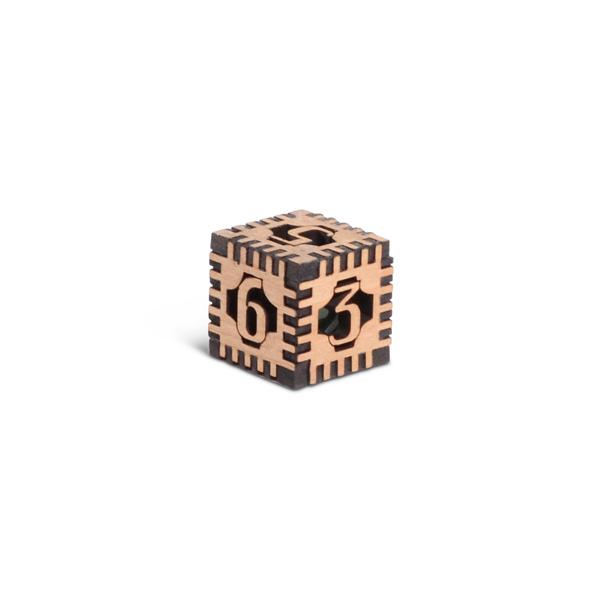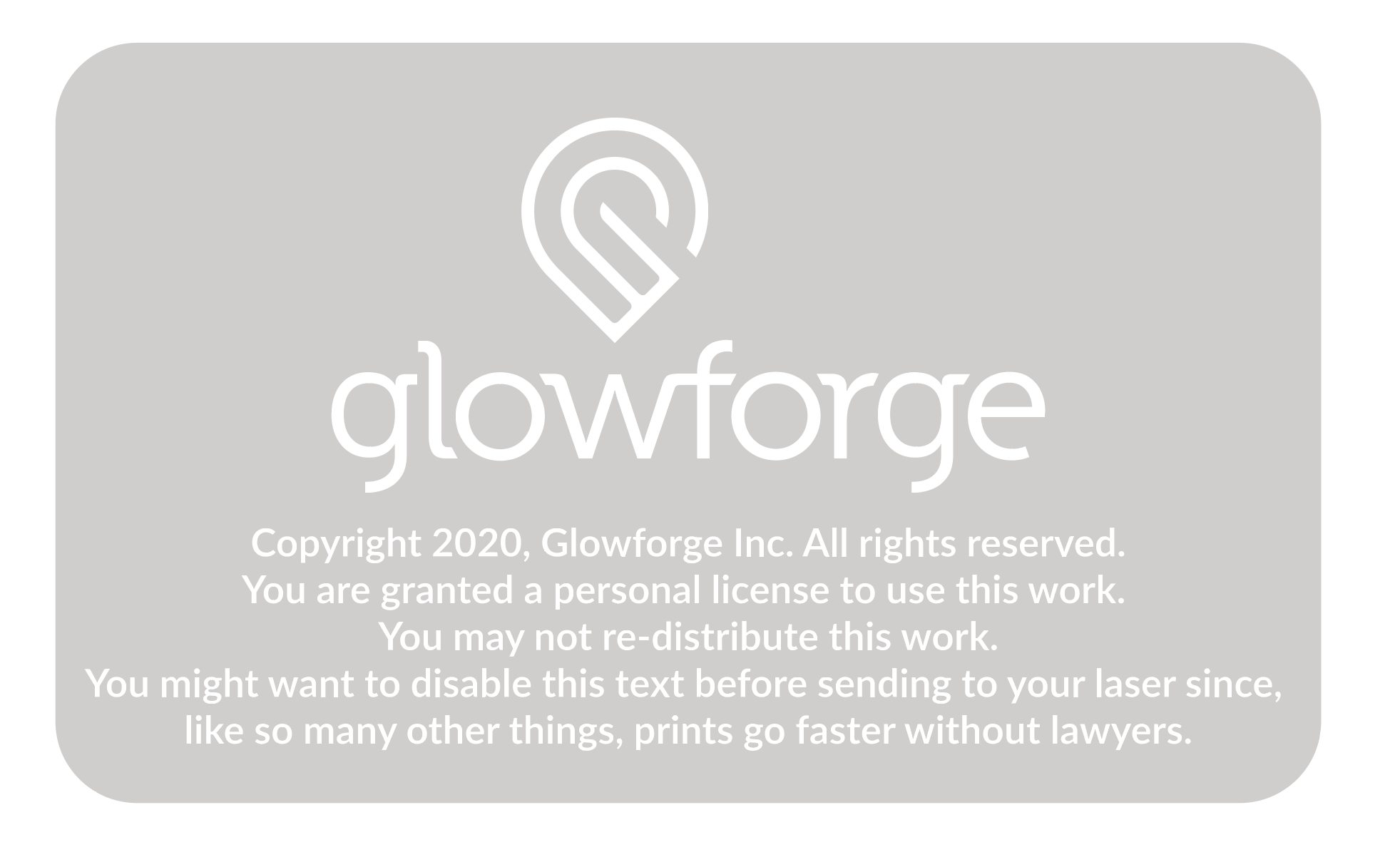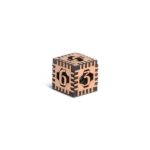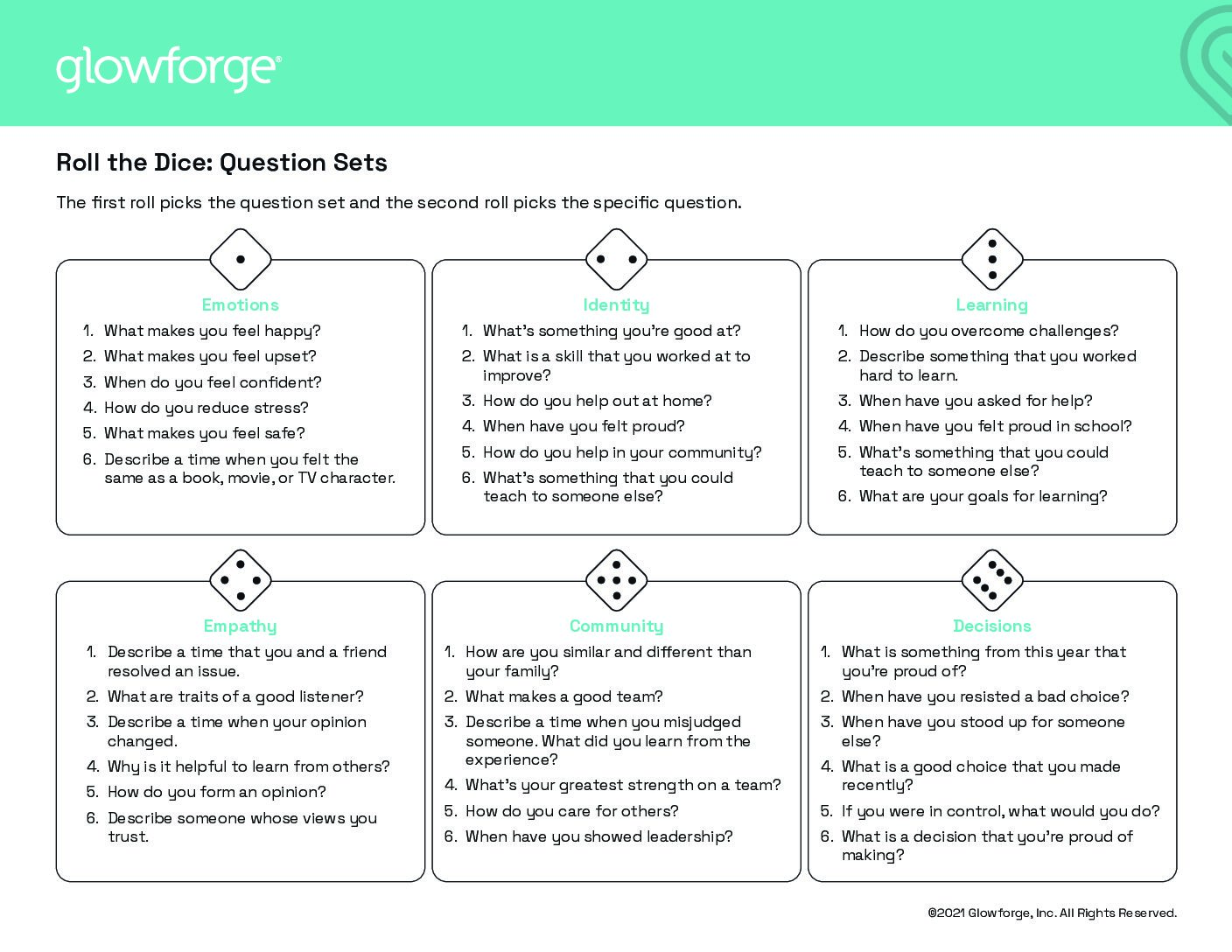
Grade Level
K, 1, 2, 3, 4, 5, 6, 7, 8, 9, 10, 11, and 12
Difficulty
Easy
Duration
30 minutes
Subjects
Arithmetic
Design & technology
Engineering
General
-
Students recognize the rights, responsibilities and opportunities of living, learning and working in an interconnected digital world, and they act and model in ways that are safe, legal and ethical.
Vocab
Reflection
Active listening
Author
Glowforge
Licensing

Lesson Handout
Overview
Roll once! Roll twice! Share your thoughts! In this activity, students will use printed dice to engage in a quick, simple reflection exercise that will have everyone talking. Students will collaboratively create their own question sets to help others reflect, practice skills, and even review content.
Objective
Thematic Questions:
Standards:
ISTE Standards for Students
Supplies
Multiple dice can be made with:
- 1 x Medium Hardwood
- Optional – marble (for weight)
Catalog Designs

Description
Lesson Outline:
Get Ready:
- Read through the activity details to review the steps for completing the activity.
- Gather all of the materials needed to print and assemble the Weighted 6-Sided Gaming Dice. Plan for printing two Weighted 6-Sided Gaming Dice per group of 3-5 students, but don’t assemble them.
- Have a copy of the handout and a printed version of the design as an example. Assemble the designs, including an optional marble in one of the die.
Production Time:
Print – 4 minutes
Assemble – 15 minutes
Lesson Instructions
Section 1 – Create:
- Plan for printing two Weighted 6-Sided Gaming Dice per group of 3-5 students by gathering all of the materials and reviewing the design in the Glowforge app.
- Demonstrate the impact of using the optional marble by rolling both dice on a desk or table in the front of the class. Consider letting the students have turns rolling as well. Discuss with the students how the extra weight impacts the dice’s ability to roll.
- Print all of the pieces and organize them into sets so that each group has two of each piece and two marbles.
- Have groups assemble the dice by following the steps of the Weighted 6-Sided Gaming Dice design project.
- Have the groups test their gaming dice. As a class, discuss:
- Which rolling surface works best for the dice?
- How well do the pieces fit together?
- Is there anything that needs to change to make them work better?
- What happens if the students omit the weight?
Section 2 – Use:

- Review the Roll the Dice handout directions with students. Explain that each person will roll the dice twice:
- The first roll determines the theme of their question.
- The second roll determines the question (1-6) that they’ll answer from that theme.
Ask a volunteer to help demonstrate rolling and identifying which question to answer.
- Have students work in small groups of 3-5. Encourage students to take turns rolling the dice and responding to a question.
- Remind students that their first roll determines the question theme and the second roll determines which question to answer.
- Give students enough time to repeat the process until everyone in each group has had the chance to answer two questions.
- After completing the initial two questions, ask: “What questions would you add to your question set?” Each group will write six questions that other groups will answer. The questions might focus on themes such as:
- A content review game
- An extension of the social and emotional learning questions
- Getting to know you
- A combination of these question types or others
- Once each group has written and numbered their questions, have groups exchange their question sheets. Each group will roll a single die and take turns answering the questions.
- Repeat exchanging question sets and answering questions 2-3 times.
Reflection Questions:
Help students consider…
- What discoveries did you make while discussing responses with classmates?
- What other types of questions would you like to ask your classmates?
Pro Tips:
- Consider laminating the Roll the Dice handout so that you can reuse the question sets.
- Create question stems to help students generate their own questions.
- Consider customizing the face of the dice by adding symbols, images, or other icons to represent each of the six faces. Drag select the design, right-click, and choose “Ungroup”. Students can delete the decoration from the middle of each face and use the toolbar to add new text, numbers, or icons.
Reimagine:
- How can the Roll the Dice reflection activity be adapted for content? Adapt the questions for literary, historic, math, or other content-based reflection.
- How can we use dice to study? Turn the dice into a student-created quiz-quiz-trade review game by having students create six question review practice quizzes.What other activities could we use our customized dice with? The dice could be helpful in several Glowforge activities like Not-so-scary Monsters [Link to Activity – Not-so-scary Monster] or Customized Game .
Meet Glowforge
The magical 3D laser printer that made this lesson possible. Learn more!


